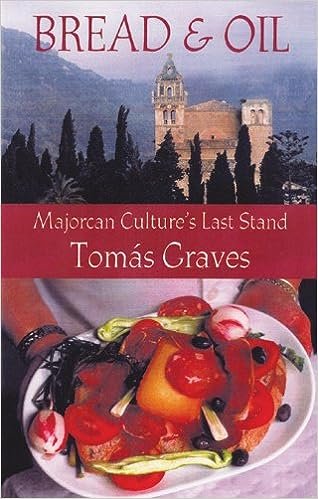Photo by Brands&People on unsplash
"People say to me, incredulously: 'You mean to say you're writing A whole book about bread and oil?', as if the subject warranted no more than a paragraph. Oh, come on!" exclaims Tomas Graves, the author of "Bread and Oil: Majorcan Culture's Last Stand."
"People write doctoral theses on germs you can't even see without your reading glasses, so why is there no book written about this age-old invention? For centuries it was the pillar of the Balearic survival diet. It was the only thing left between hunger and starvation, feeding generation upon generation of islanders, and without it many would not be here today: it deserves full recognition."
Majorca, a popular tourist destination in the Balearic Islands off the southeast coast of Spain, was once largely rural and agricultural and the consumption of pa amb oli (bread and oil) is as traditional as beer in Germany. For Graves, and others, the pa amb oli is one of the final remnants of a Majorcan culture that's largely been overrun by modern-day Visigoths in Mercedes and four-wheel-drives Vitaras.
Writing with passion and irony, Graves has composed a food book in which history is the main ingredient and which has more social commentary than recipes. By defending and elevating pa amb oli, a cheap and cheerful food, he hopes to preserve some portion of the true Majorcan essence from the fancified cookbooks aimed at up-market visitors from other lands.
Originally published as "Volem pa amb oli" in the native Catalan language of the Balearics, the new English-language edition of Graves' book offers an informative guide not only to a overlooked culinary tradition but also to the immense cultural transition that's changing the face of Europe.

